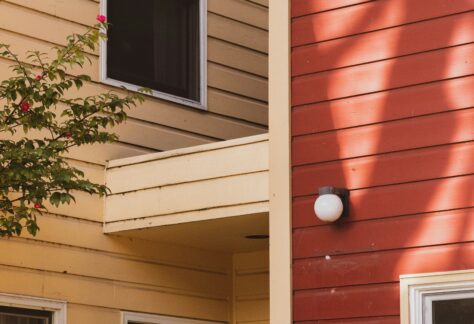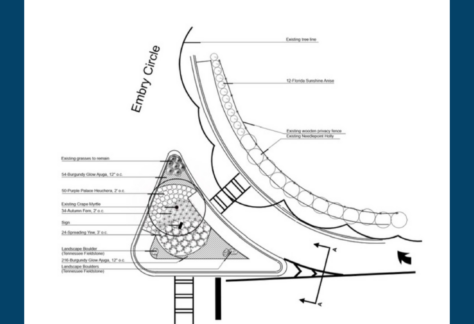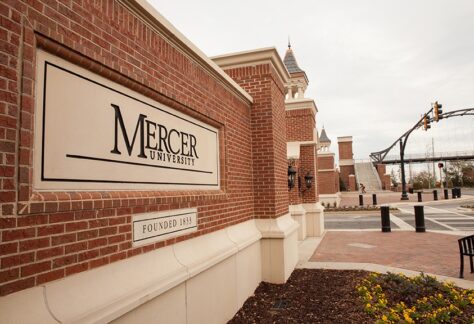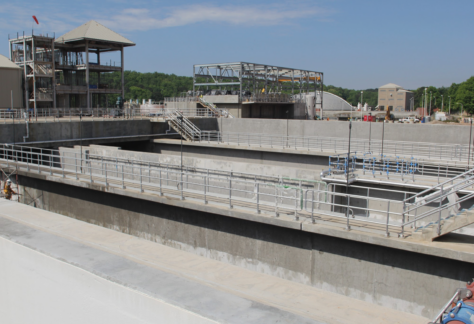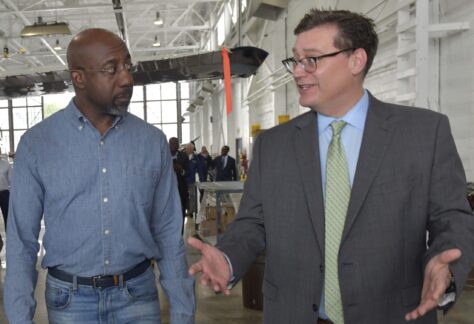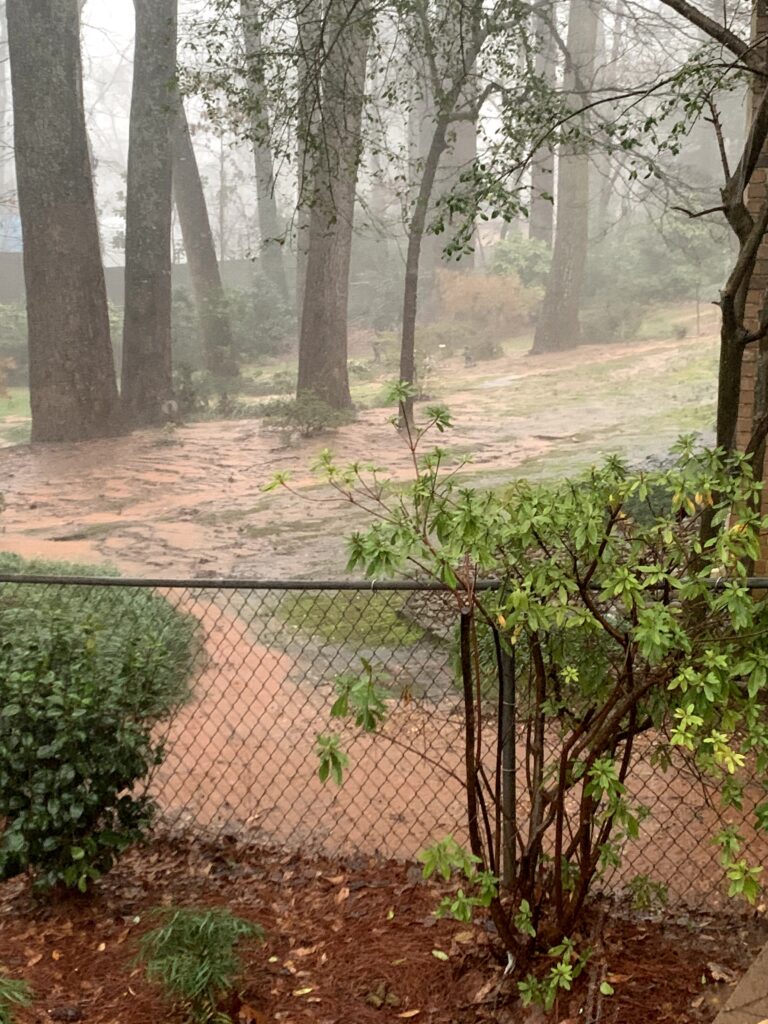
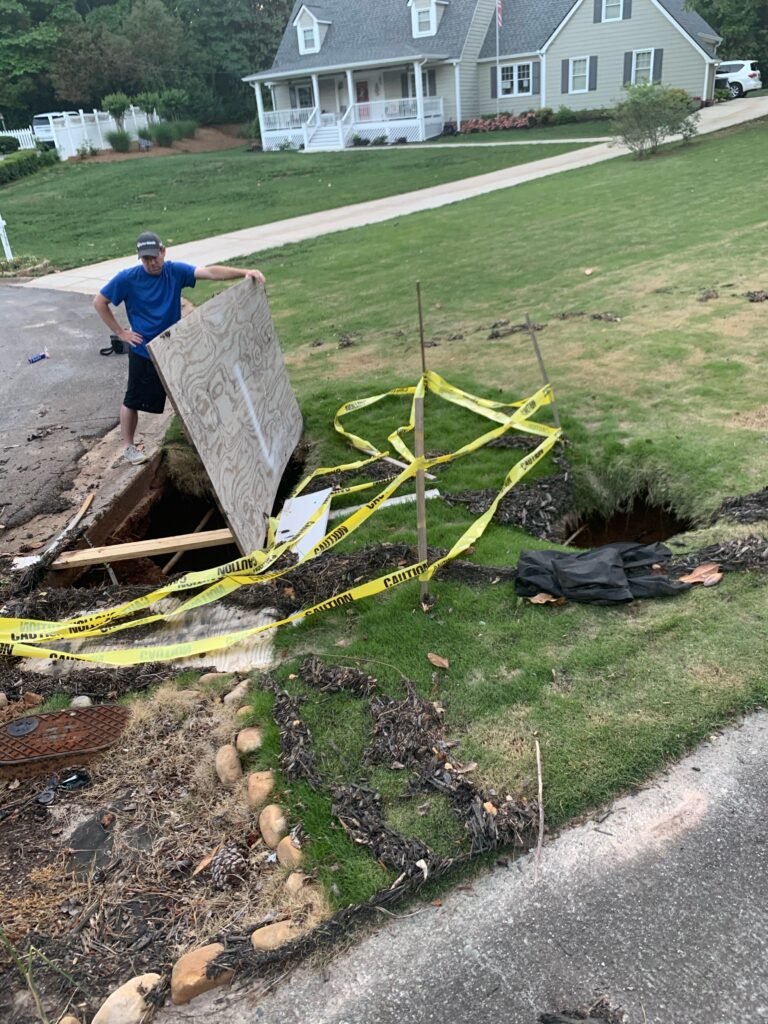
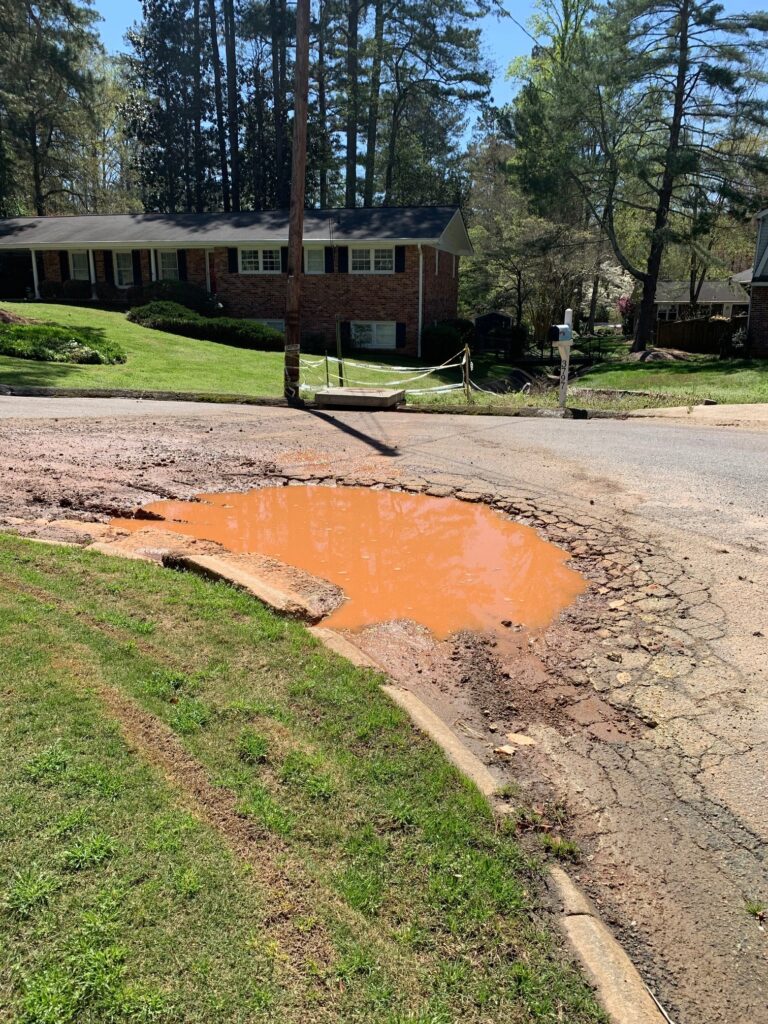
One of the most important things we do as a county is ensure our infrastructure works: From streetlights and streets to sewer and sanitation. While it’s not the most glamorous work, it is the nuts and bolts that make the county work the way it should.
One issue county residents tell us about frequently is flooding – especially after heavy rains.
When we get big storms or even long bouts of steady rain, it causes flash floods, deep standing water, sink holes and can overwhelm our roads.
Our stormwater infrastructure is in need of repair. To address the need, the DeKalb County Board of Commissioners will vote on a rate increase on May 23, 2023, in order to improve the quality of life in the county.
It’s an important issue for us to address because if we don’t do it, flooding, sink holes, and damage to roads could get worse.
Facts and figures
We’ve analyzed the facts and figures to better understand the impact. We present them here for all residents to understand the need for the increase.
The county hasn’t raised storm water rates since 2004. The county estimates we need about $26.1 million to fund our stormwater needs in fiscal 2024, but at current funding levels, we’d fall short by $14 million.
If the rate increase goes into effect, rates will nearly double for residential households, from the equivalent of $48 per year to $96 per year with another $12 added annually in both 2024 and 2025. By 2025, that would amount to $10/per month per household – or about the same as one fast food meal.
Without the rate increases, the reserve fund for storm water infrastructure is running dry and we’ll continue to have a huge imbalance in terms of the repairs needed vs. the funding available. The current resources are insufficient to manage our county infrastructure proactively.
And with the additional funds, we can implement our plan to improve and upgrade the infrastructure and complete the vision for our master plan.
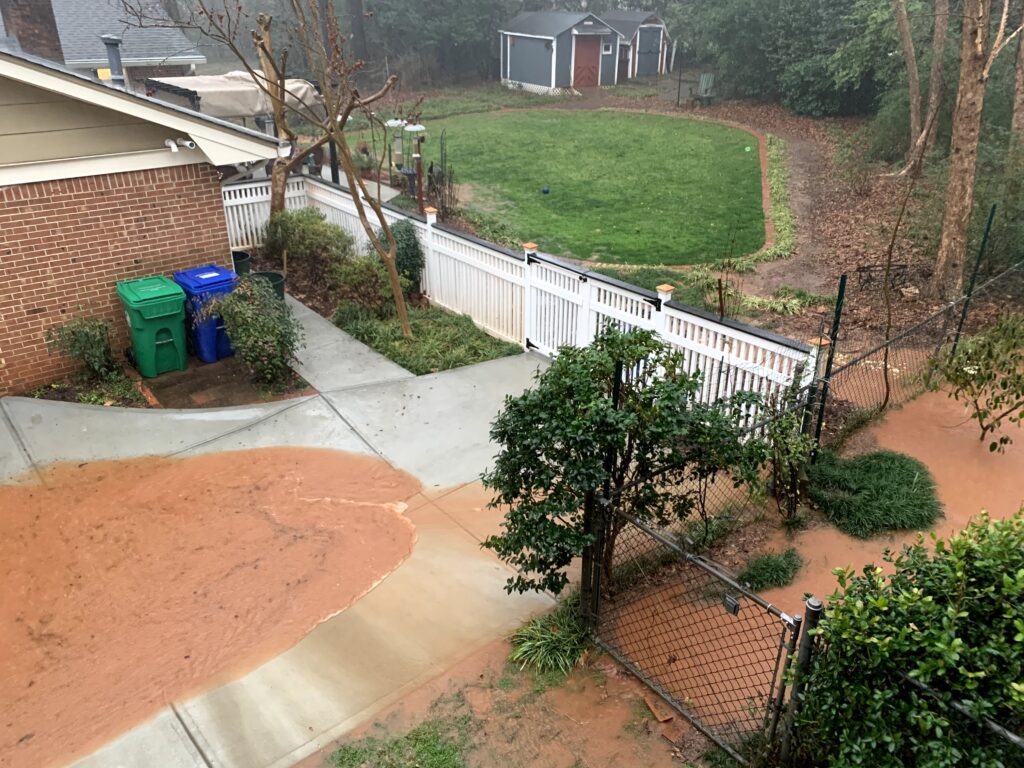
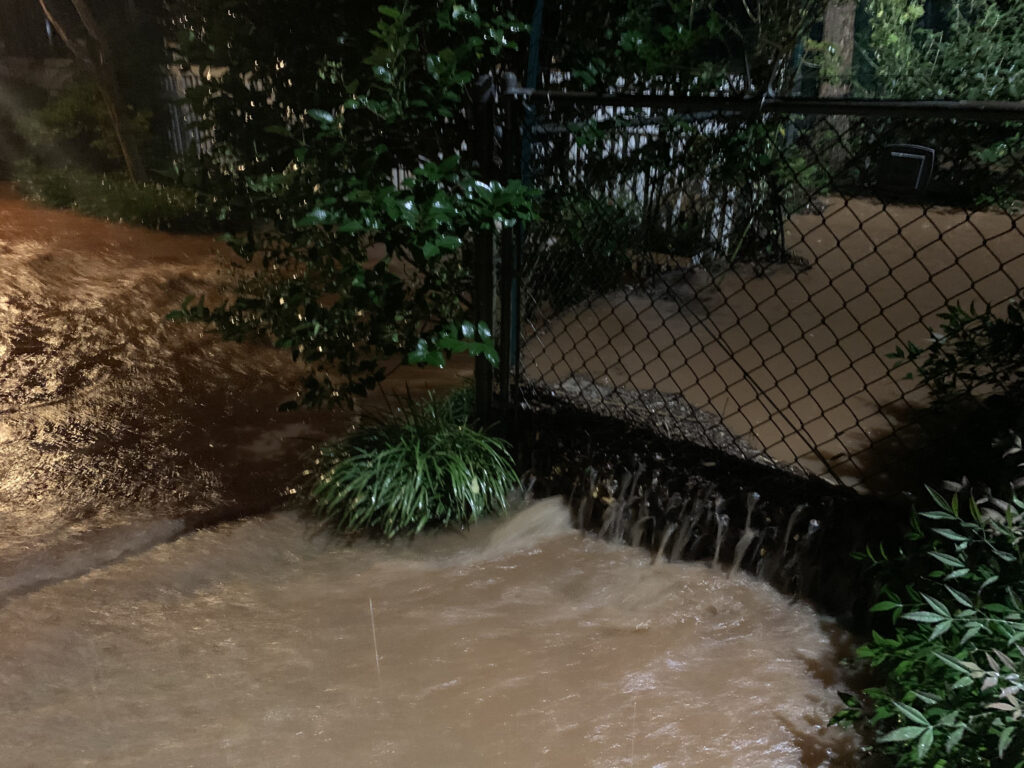
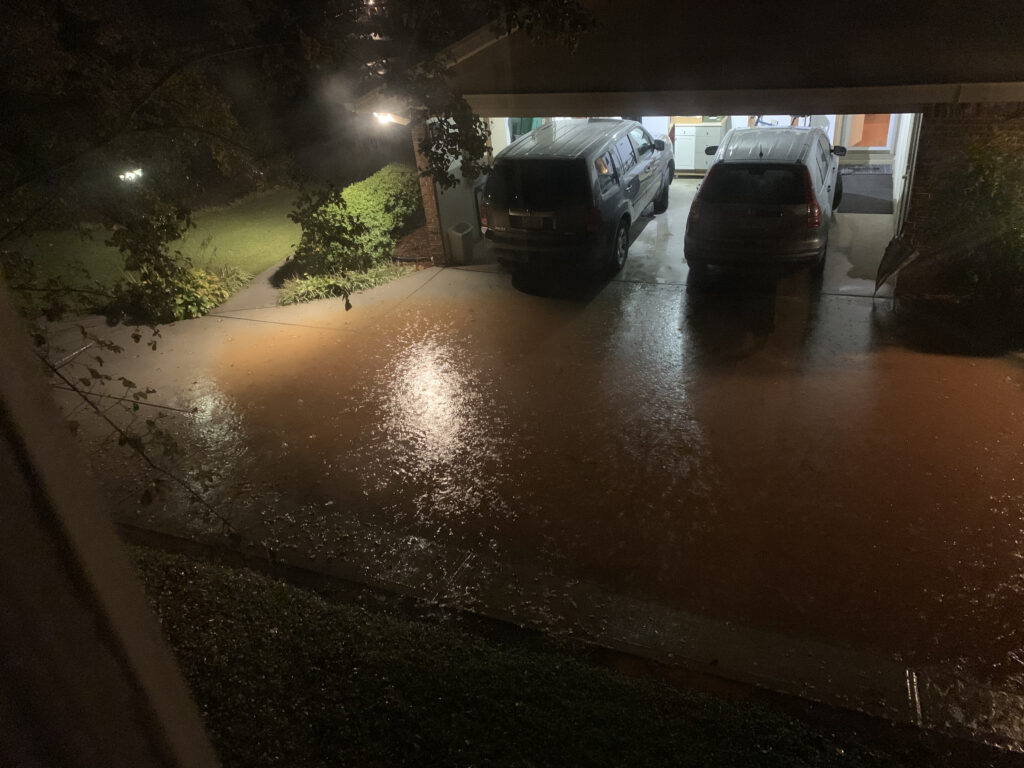
Planned Infrastructure Improvements
The funding will allow DeKalb to focus on:
• Funding the stormwater program without using reserves.
• Addressing the backlog of work orders, which is in the hundreds.
• Increasing the County’s responsiveness in addressing failed pipes and catch basins.
• Better maintaining the County’s existing detention ponds.
• Building the Capital Improvement Project reserve for emergency projects.
• Enhancing the infrastructure inspection program to identify maintenance needs.
• Proactively addressing identified maintenance needs from inspections.
With the new funding, DeKalb is planning on the following projects:
• Build a $10 million Capital Improvement Project reserve for unanticipated projects.
• Build a $6 million capital reserve to begin proactively addressing high risk infrastructure.
• Fast-track backlogged work orders.
• Hire a new pipe repair crew, on-call contractor for catch basin cleaning and pond maintenance crew.
• Contract additional pipe inspections using CCTV/line lamping of underground pipes.
• Complete the Stormwater Master Plan that will address
o risk identification / mitigation for infrastructure and water management.
o equity in stormwater utility operations and billing.
o long term sustainability for stormwater utility operations.
In all, DeKalb estimates it needs to repair, replace or build:
• 600+ miles of pipe in the road right-of-way
• 400 miles of corrugated metal pipes that are approaching the end of their service life
• 25,000 catch basins
• 1,020 detention ponds
• 1 Cat 1 Dam
• 200+ bridges
• And 175 roadside ditches.
While we know it’s hard anytime we raise taxes, rates and fees, we believe that the rate increase is necessary to improve our quality of life in DeKalb and hopefully cut down on the issues our county residents are facing with flooding and standing water.
We look forward to hearing from you. If you’d like to let us know what you think about this issue, please email us at district1@dekalbcountyga.gov

